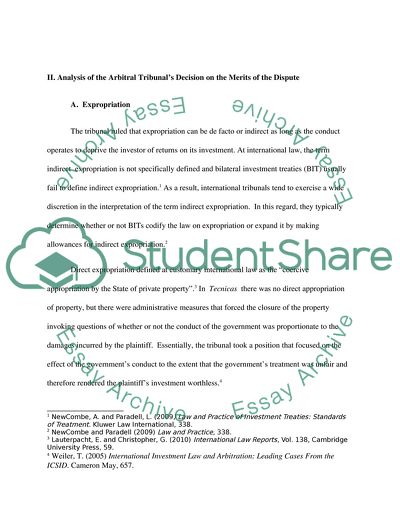Cite this document
(Tecnicas Medioambientales Tecmed S.A Case Study, n.d.)
Tecnicas Medioambientales Tecmed S.A Case Study. Retrieved from https://studentshare.org/law/1743850-tecnicas-medioambientales-tecmed-sa-v-the-united-mexican-states-case-no-arb-af002-award
Tecnicas Medioambientales Tecmed S.A Case Study. Retrieved from https://studentshare.org/law/1743850-tecnicas-medioambientales-tecmed-sa-v-the-united-mexican-states-case-no-arb-af002-award
(Tecnicas Medioambientales Tecmed S.A Case Study)
Tecnicas Medioambientales Tecmed S.A Case Study. https://studentshare.org/law/1743850-tecnicas-medioambientales-tecmed-sa-v-the-united-mexican-states-case-no-arb-af002-award.
Tecnicas Medioambientales Tecmed S.A Case Study. https://studentshare.org/law/1743850-tecnicas-medioambientales-tecmed-sa-v-the-united-mexican-states-case-no-arb-af002-award.
“Tecnicas Medioambientales Tecmed S.A Case Study”, n.d. https://studentshare.org/law/1743850-tecnicas-medioambientales-tecmed-sa-v-the-united-mexican-states-case-no-arb-af002-award.


